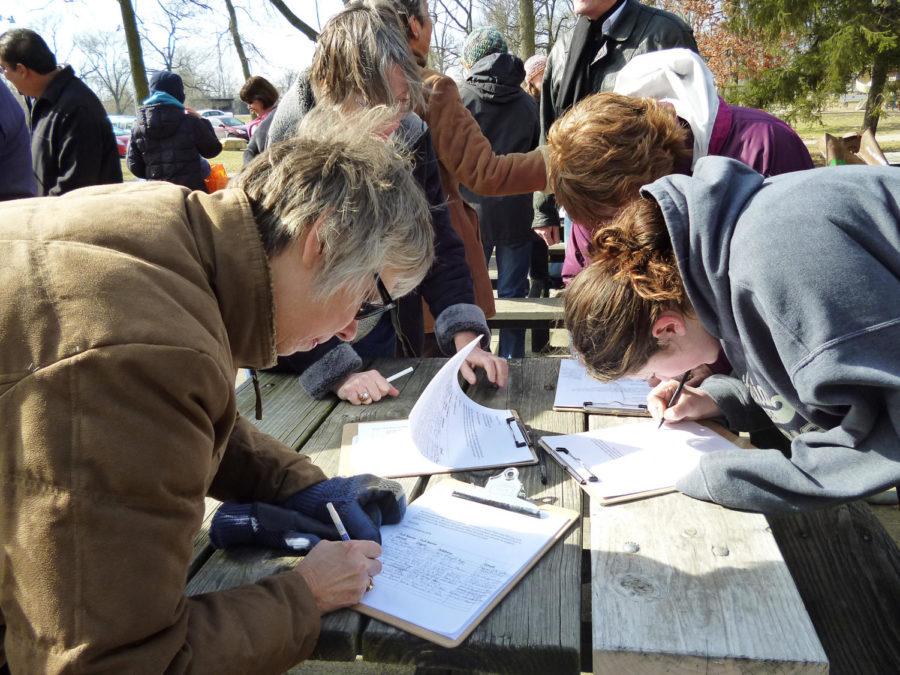Iowans protest Keystone XL pipeline in Ames
Photo: Lissandra Villa/Iowa Stat
Protestors in Ames sign letters to their representatives opposing the Keystone Pipeline on Sunday, Feb. 17 at Brookside Park in Ames, IA.
February 17, 2013
In Washington D.C., protestors turned out Feb. 17 to urge President Barack Obama to reject the Keystone XL pipeline, a system to transport oil from Canada to the U.S. The nation’s capital, however, was not the only place that protestors gathered.
“With a whole bunch of people not being able to go to D.C., we thought we’d put on a sister rally and get Ames involved,” said Keri Katz, the rally organizer.
More than 30 protestors gathered at Brookside Park in Ames, Iowa, on Feb. 17 to listen to a short talk on how the Keystone XL pipeline project will negatively impact the environment, sign letters to representatives and have kids sign a letter to Obama.
“It is fantastic to see Ames rising up. A lot of people think of Ames and Iowa as flyover country, but we’re here today to say that we are more than that,” said Susan Brehm-Stecher, a protestor. “We are the heart of the United States and we also oppose the pipeline and we’ll stand in solidarity with the ralliers in D.C.”
Women Organizing Women, a new group formed by Katz and Brehm-Stecher meant to spark activism, organized the family friendly event.
The group, whose participants included not only adults but kids and a few dogs as well, congregated at the Maple Park Shelter.
“[Keystone XL] will take oil from … Alberta, Canada, and pump it to the southern United States, where it will be refined and then distributed for use,” said Stephen Biggs, a protestor.
Biggs said the point of the protests was to place pressure on the Obama administration to make good on promises to make environmentally conscience decisions.
“The main defenses that people give [for Keystone XL] are that it’s a jobs program … and it will lower the price of gasoline,” said Clark Wolf, an ISU professor in philosophy and religious studies.
Wolf, however, said that he believed the temporary benefits did not justify the costs for future generations.

















